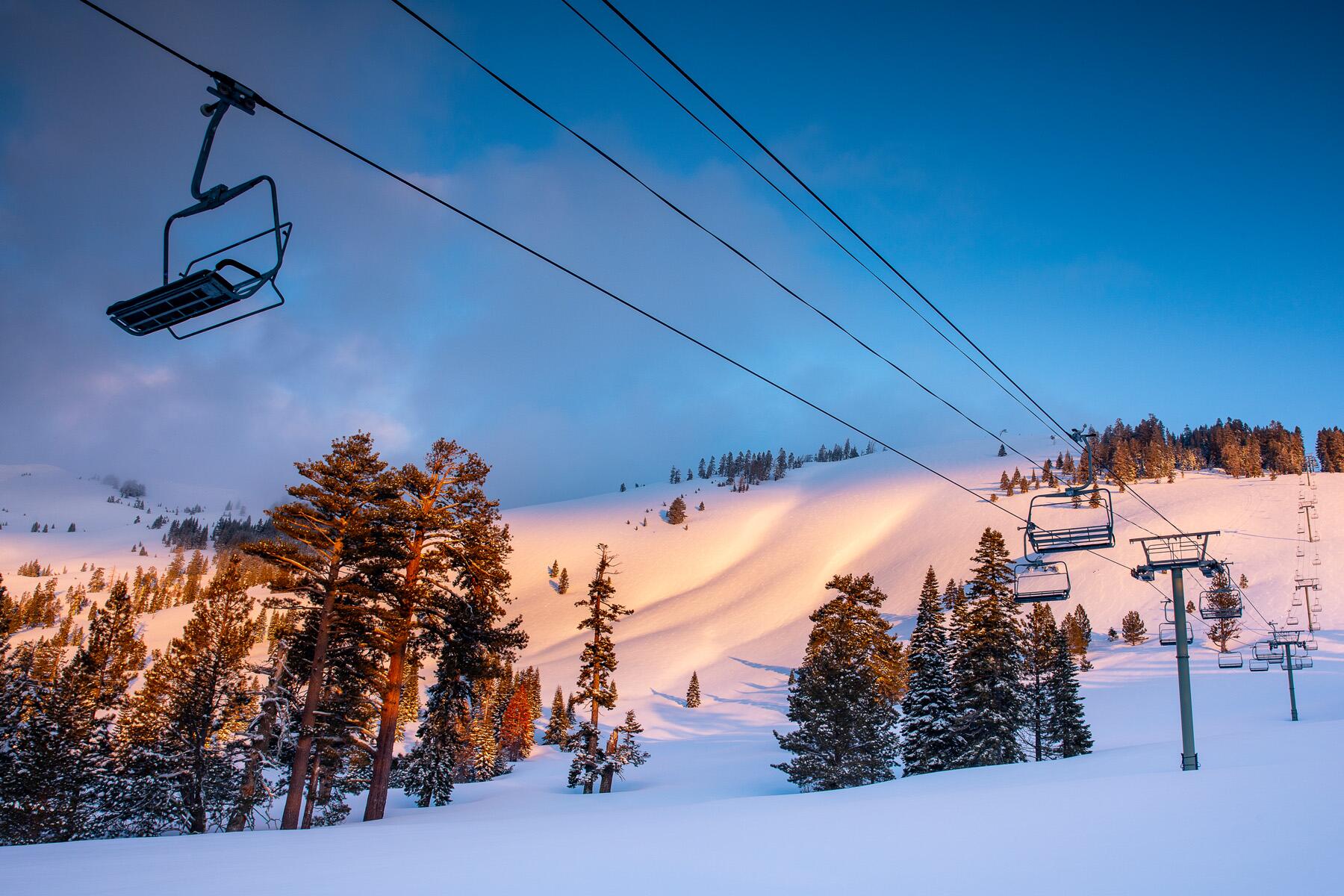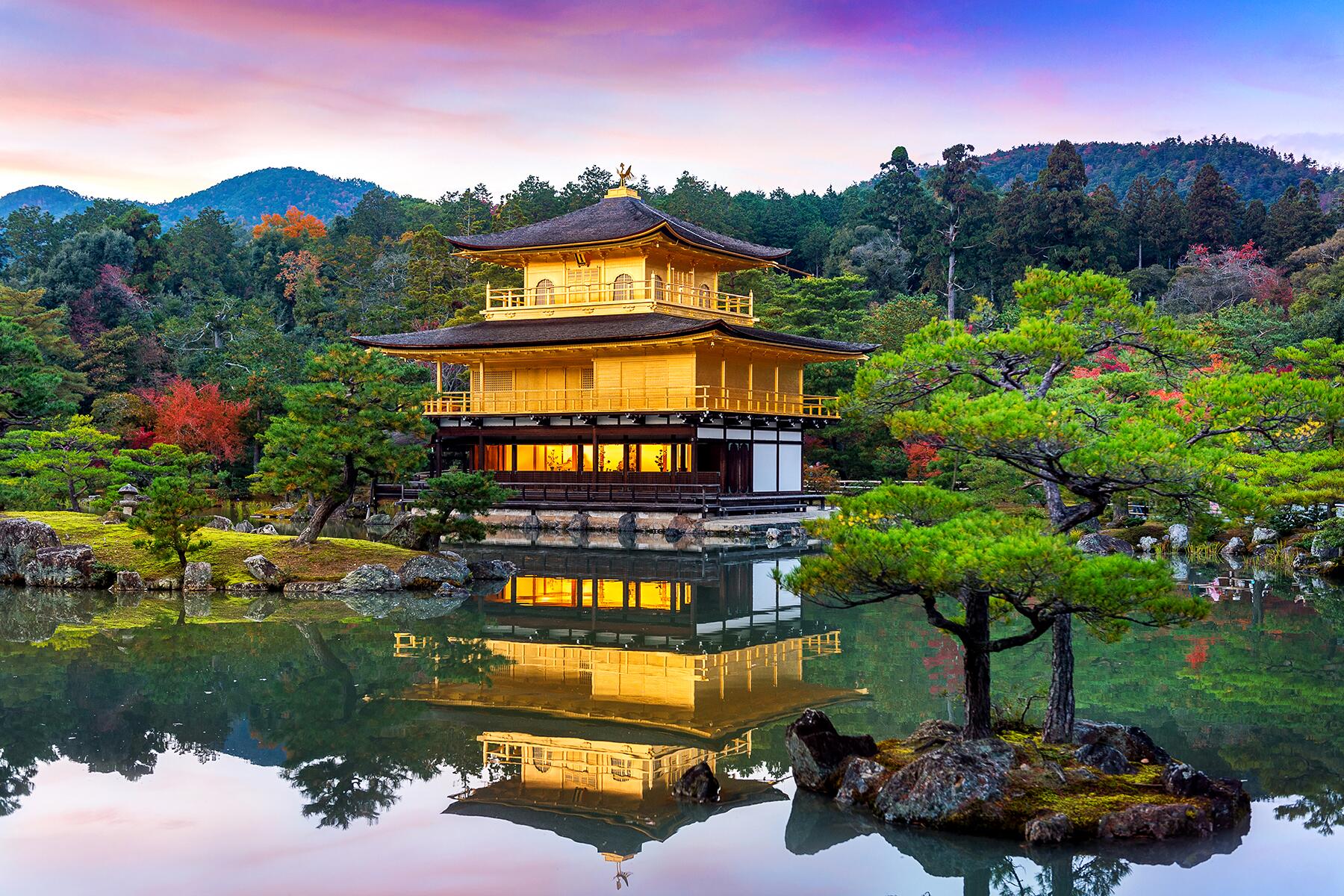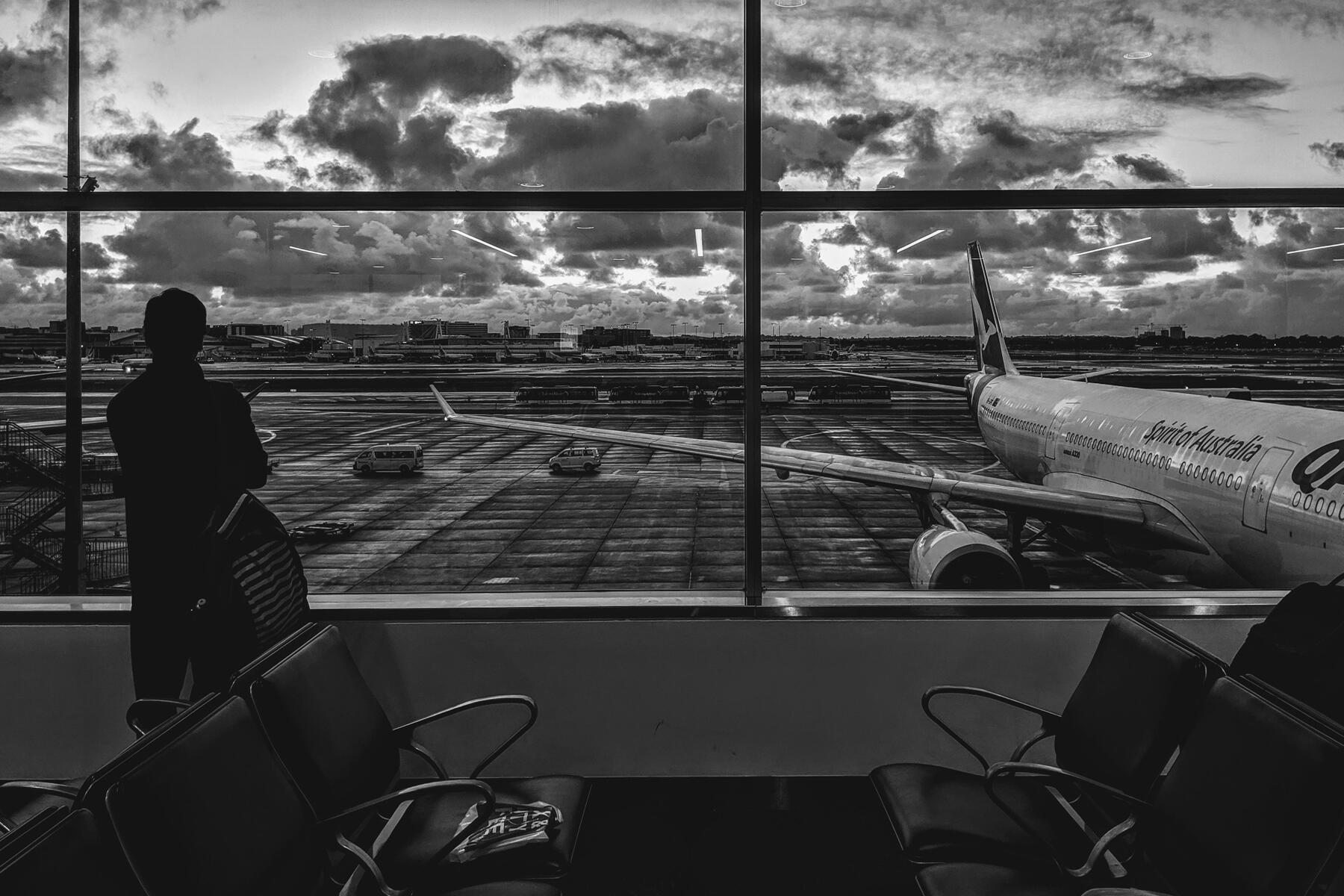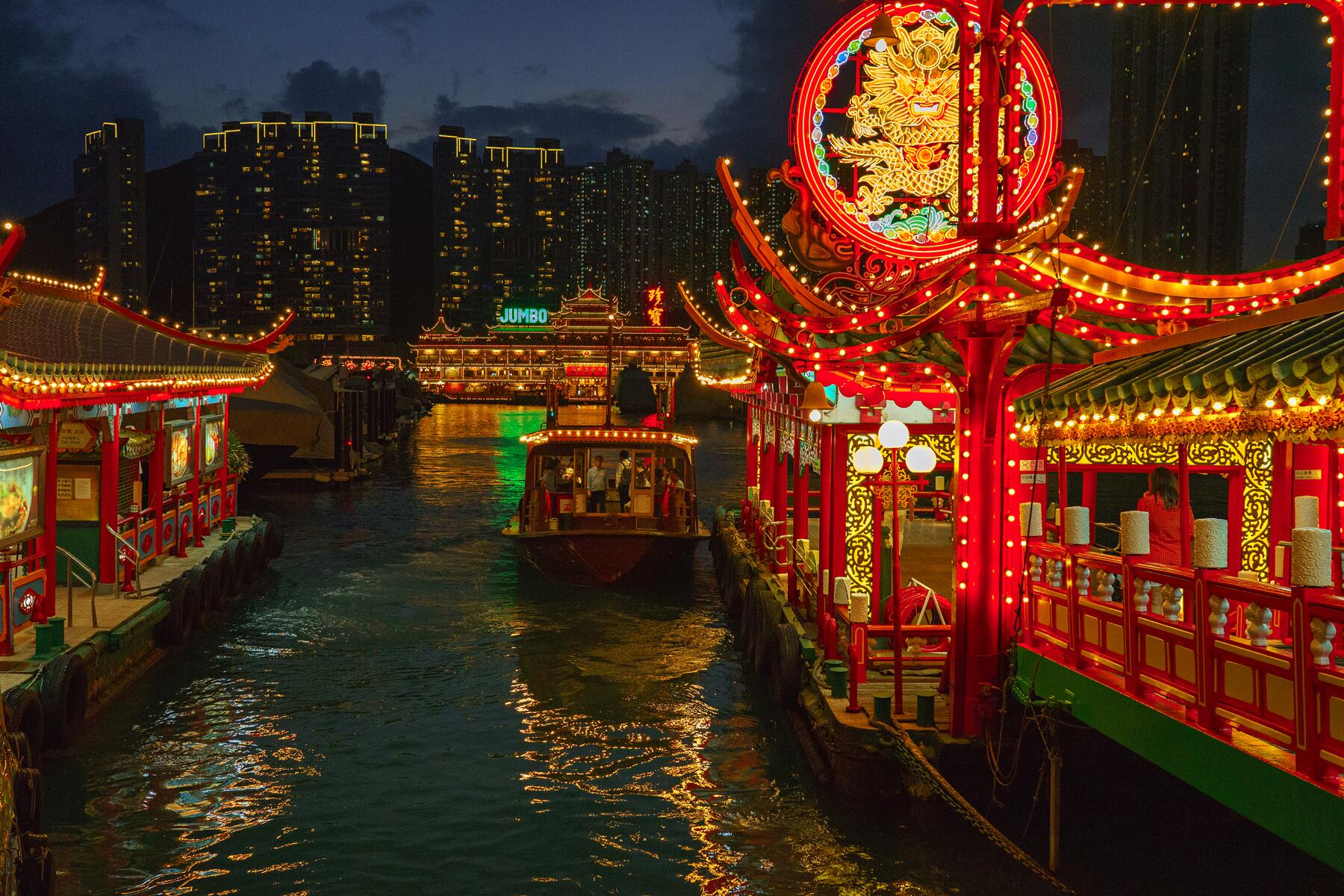No, but it will look different. Here's everything you need to know.
With winter fast approaching, ski resorts across North America are beginning to unveil their COVID-19 action plans in order to safely welcome back enthusiastic skiers and snowboarders. This ski season is a go, albeit with new CDC and local health authority-backed guidelines, so it should come as no surprise that the experience will look a lot different than what we’re used to. The focus of ski resorts has always been to achieve a healthy balance between enjoyment and the safety of guests. Across all resorts this winter, hand sanitizing stations will be installed in high traffic areas, and frequent signage and markings in public areas will serve as reminders to physically distance and stay with your immediate party. Liesl Hepburn, Public Relations Director at Squaw Valley Alpine Meadows, told Fodor’s in a phone call that skiers have practice with abiding by rules, referring to the National Ski Areas Association’s Responsibility Code for skiers. Guests on the slopes are expected to practice common sense and respect others to ensure a safe experience for everyone. “There are some additions to the skier’s Responsibility Code this year, and that includes wearing a face covering and keeping six feet between yourself and others,” says Hepburn. Have your mask on hand as they’ll be mandatory when you’re in indoor public spaces, as well as on lifts, in gondolas, and while you’re queuing up.

Do You Need a Reservation or a Season Pass?
Because resorts are operating at a reduced capacity to allow for proper physical distancing, planning ahead and opting for weekday visits are two key messages resorts are emphasizing this year. This includes making advanced reservations at on-site restaurants if you’re planning to dine at the resort, and Copper Mountain is even implementing an online reservation system for parking spots. Season pass holders will receive the biggest benefits this year, as the Epic Pass is introducing a reservation system at all 34 of their Vail Resorts owned and operated resorts. This gives pass holders priority when making lift ticket reservations in the early ski season, and, up until December 7, they’ll have exclusive access to the mountain before lift tickets open to the general public for sale on December 8. Alterra Resorts on the Ikon Pass are taking a slightly different approach, and, while some sites like Big Sky, Jackson Hole, and Aspen Mountain require lift reservations, others, like Snowbird and Squaw Valley, will not. But all resorts, regardless of approach, will be taking measures to limit daily numbers and manage traffic flow on the mountains. Window sales will largely be eliminated across the resorts, and the few that are offering them will stop sales of stand-alone lift tickets once the slopes hit capacity, meaning that pass holders will be rewarded with the most flexible access to resorts this winter. It’s an uncertain season, so both the Epic and Ikon Passes have very similar forms of added assurance for peace of mind. If for any reason you can’t use the Ikon Pass due to job loss or illness, your payment can be deferred to next season’s pass. And if resort closures occur due to the pandemic, you can receive a proportional credit toward next year’s passes. On the Epic Pass, you can request to receive a full or prorated refund should any of those events occur. Some resorts, like Whistler Blackcomb, are opting for a touchless environment to minimize contact, so expect to reserve lift tickets online. Other resorts, including Jackson Hole, Sun Valley, and Snowbird, are encouraging guests to download their apps where they can conveniently access maps and the latest updates on resort capacity and lift wait times with minimal contact.
Recommended Fodor’s Video
What About Renting Equipment?
For those who plan to travel light and rent equipment once you reach the resort, rental shops are disinfecting everything from skis to helmets before allowing the next guest to pick those up. Breckenridge is encouraging guests to book their rentals online and have it delivered to wherever they’re staying, and Steamboat is only renting through advanced reservations. This minimizes contact in rental shops and ensures that your gear is clean and ready for use. Squaw Valley Alpine Meadows has shared that they’re temporarily suspending rentals of ski pants just to be safe. And, while you’re encouraged to buckle up your boots in your car and store your things there, Steamboat is offering additional space but taking extra precautions by providing guests with nylon shoe bags to place your items in before they’re transferred to a locker by an attendant. With the proper protocols in place, “equipment rental is probably not your highest risk activity,” says Dr. Stephen Hoption Cann, Clinical Professor at the UBC School of Population and Public Health in Vancouver, Canada.

Is the Ski Lift Safe?
For lifts this year, resorts are only loading members from the same party onto one lift. For a four-person lift, two singles are being seated on opposite sides, and on a six-person lift, two singles or two doubles are being seated on opposite sides. Steamboat has emphasized that anyone who wishes to ride alone can do so. In terms of transmission risks, Dr. David Hamer, Professor of Global Health and Medicine at the Boston University School of Public Health and School of Medicine, says, “That’s far enough apart that you’re really not going to have close contact, especially given the fact that people are outside. There’s going to be a lot of airflow when you’re on a lift, so any potentially infective aerosols are going to be dispersed very quickly.” He adds, “The downside is that the lines are going to be a lot longer.” So, be patient and expect to wait at the lift lines this year due to reduced capacity. When it comes to gondolas that have a higher capacity, unrelated parties will load onto the cabin with a space between them, and windows and air vents will remain open to promote air circulation.
Is Apres Ski Canceled?
Health experts agree that dining in and visiting bars are two of the riskiest elements of a ski experience. “If you’re going to eat in a restaurant, your risk increases with time spent. So the more time you spend in that indoor environment, the greater your risk is,” said Dr. Hoption Cann. He added that “You have to keep [time] in mind. Nobody wants to rush through a meal, but these are unusual times.” Restaurants are operating at a reduced capacity, and encourage guests to make reservations if they are planning on dining in. They also kindly ask that you mind the time so that they can accommodate everyone safely. More grab-and-go options will be made readily available to minimize contact, and restaurants will also be creating more outdoor dining spaces. Squaw Valley is setting up outdoor areas with heat lamps and fire pits for “warm-up” breaks so guests don’t have to crowd indoors to escape the cold. Though the après ski culture has long been part of the traditional ski experience, the often raucous ski after-party will need to be reimagined this year. In a bar, “people are in prolonged contact drinking alcohol. They might not be as much on their guard as they would usually be. And if you’re drinking, you’re not wearing a mask. So that’s a setting where you [have] a high risk of exposure unless people are well spaced out and kept within their original groups,” said Dr. Hoption Cann.

The resort bars that are open are all operating at reduced capacity and following guidelines of local health authorities. The bougie rooftop bar at Grand Colorado on Peak 8 is installing a new glass dome, which will be open for reservations for groups to unwind after a day on the slopes in a heated and private environment, overlooking the resort’s snow-capped peaks. Vail Resorts will not be operating any full serviced bars and instead will be offering beer and wine to go, while others, like Sun Valley, are staffing their bars with more waiters to encourage guests to remain seated.
So, It Can Be Safe?
Health experts agree that skiing is a naturally socially-distanced sport, and with an abundance of fresh alpine air and thousands of acres of terrain, it’s safe to say that the sport itself poses minimal risks—it’s the components surrounding the ski experience where you must be cautious. “It’s important to emphasize the need for precaution in three [different places]—gondolas, bars, and restaurants,” Dr. Hamer said. As an avid skier himself, he suggests a responsible ski trip this year would include safe travel to the destination, which requires taking appropriate precautions if you’re flying or taking public transit there. He also suggests renting a condo instead of staying at a hotel so you don’t have to rely on eating out at restaurants for all of your meals. As the pandemic remains a very dynamic situation, resort rules and regulations are expected to change. Stay informed and up to date by checking your resort’s website or downloading their app.



